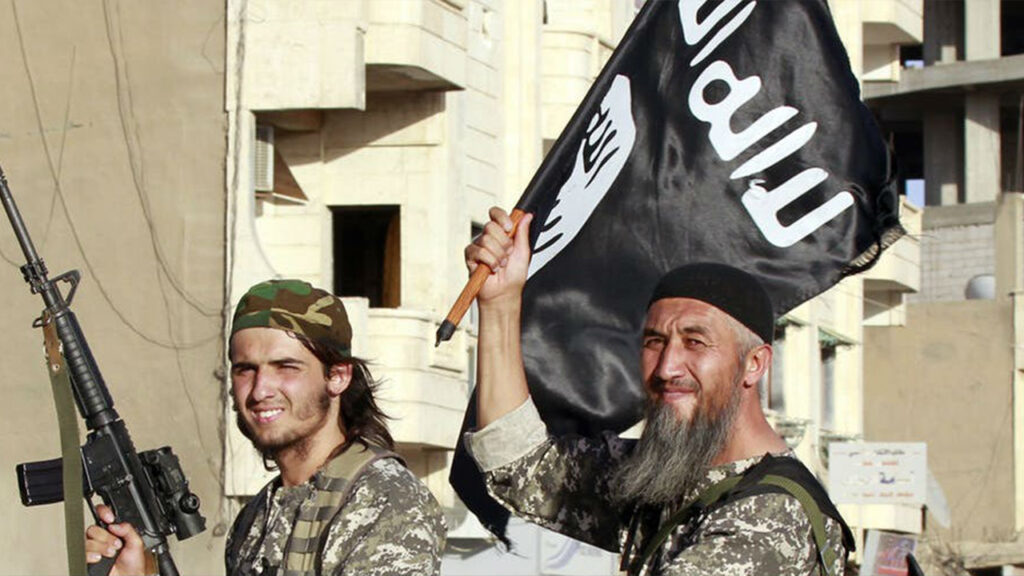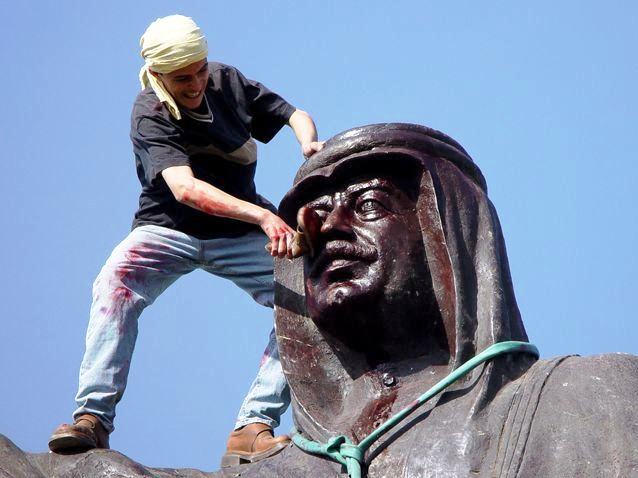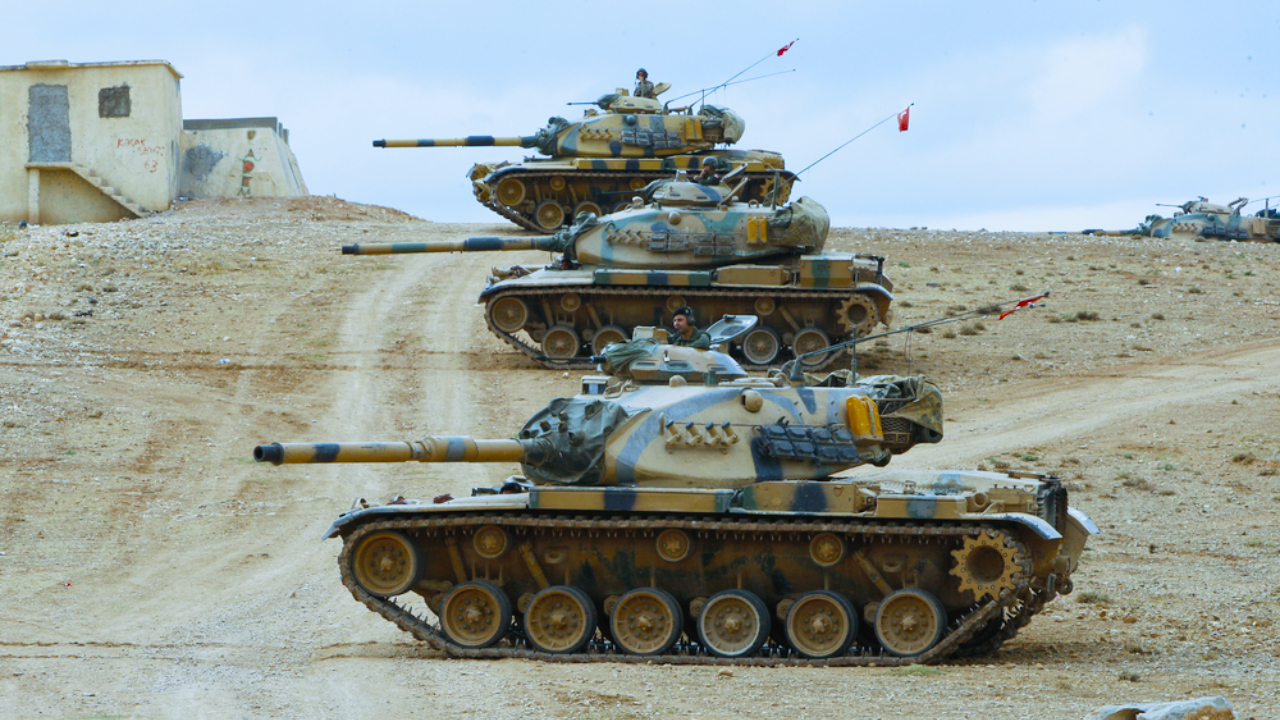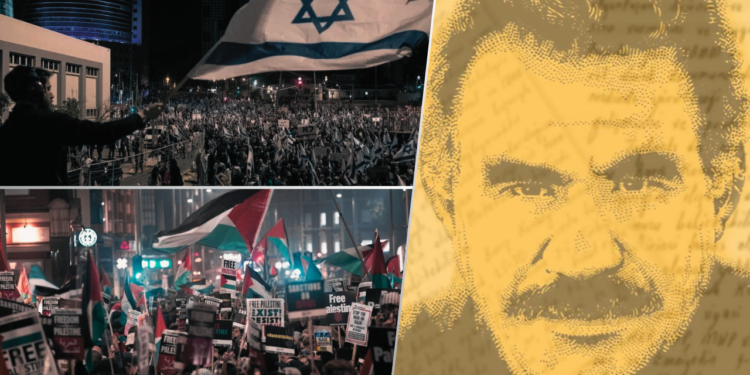*This is Part 3 of a three-part series on Öcalan’s vision for lasting peace. Check out Part 1: “Is two-state solution answer to Israeli-Palestinian conflict?” and Part 2: “Islamic movements in Palestine and the Middle East“
Abdullah Öcalan, the imprisoned Kurdistan Workers’ Party (PKK) leader, who has been held in incommunicado detention for two and a half years, had set out his views on the protracted Israeli-Palestinian conflict in his handwritten submissions to the European Court of Human Rights (ECHR), later published in five volumes under the title “Manifesto for a Democratic Civilisation“.
As the Israeli-Palestinian conflict rages on, we look at Öcalan’s analysis of an alternative two-state solution.
Can an end to decades of conflict be achieved through the two-state solution, often proposed as a means of resolving the Israeli-Palestinian conflict and bringing peace to the region?
Or, in the war-torn Middle East, wracked with Islamic extremism and sovereign violence, is a form of coexistence possible that reaches beyond the nation-state model?

The examples of Afghanistan and Pakistan, Iran and Iraq, and Israel and Palestine, with the destruction they cause, the blood they shed and the tears they bring, reveal the insolubility of the nation-state not only in the Middle East but also on a global scale. They prove that it is not only the cruellest instrument of governance for human societies, but also a source of insolubility. Through the destruction of the cultural fabric of the region, they are a symbol of the greatest catastrophe in history.
While capitalism and industrialism, which should ring alarm bells for Europe itself, can only be sustained through reforms, it is inevitable that the historical problems of Middle Eastern society will lead to conflicts and wars beyond the borders. The intensification of capitalism and industrialism in Middle Eastern society means the intensification of the war against society itself and its environment. The actual state of modernity, an ever-present strategic tool of war, under whatever guise, confirms this assessment.
The ideological hegemony of Orientalism is a distortion of the facts. Western modernity has subjugated the Middle East for the last two hundred years. The real truth cannot be concealed by nation-states, manufacturing industries, public economic fraud. What happened to Saddam Hussein can only be compared to what happened to Louis XVI of France, who dared to step out of the order of conquest. The execution of Saddam, the king of the nation-state, will mean that the reality of hot war already present in the Middle East will flare up, spread and become permanent, just as Europe went up in flames after the beheading of the king. It is already the case.

If we deconstruct the Orientalist paradigm, we will see that for the Middle East, the end of the Cold War means leaping into the upper stages of hot war. The fact that the 1991 Gulf War took place one year after the end of the Cold War confirms this view. From a “long term” perspective, this war of modernity for the Middle East began with Napoleon’s invasion of Egypt in the early 1800s and culminated in the creation of nation states, the creation of 190 capitalist agencies and the industrialist plunder of geo-economic resources, especially oil. This is the thick, linear narrative of modernity. The rest are short stories with details and many cycles. I often hesitate to use the terms crisis and chaos for the region. If the reality is a hot war, it would be misleading to reduce it to crisis and chaos. Undoubtedly, today’s wars do not resemble the forms of warfare of the early and medieval ages, nor those of the modern era until the two world wars. Wars started to involve the masses, especially with the First and Second World Wars. After the Second World War they became socialised. It is a requirement of the new nature of the march of modernity’s three-legged monster of to realise that the period of wars fought outside society, with internal and external distinctions, is over, and that the new period means wars are conduct in a united manner within society. In the whole of Middle Eastern society in general, it is very important to analyse the reality of the Palestine-Israel, Afghanistan-Pakistan, and Iran-Iraq wars in this context.
Incomprehensible events and processes can also be better understood by analysing them in this context. How can the new wars in the Middle East, waged under the hegemony of the USA and the EU, be brought to an end? Will there be a further expansion and intensification of these wars? Can they leave the region? What can we expect if they do, and what if they do not? It is obvious that no clear and definitive answers can be given to these fundamental questions. What is certain, however, is that we are about to enter a new phase in history.¹

The fact that no approaches from a nation-state perspective solve problems, but rather, they exacerbate them, is no more instructive than the example of Israel and Palestine. The world has been paid and bloodied to get this done. What remains is a tangle of problems from which it will be even harder to escape. It is capitalist modernity and the nation-state paradigm that is bankrupt in the case of Israel and Palestine.
The Jews are one of the most important assets of the culture of the Middle East. Their denial and genocide would be a loss for everyone. It has become clear enough that it is not possible to live in peace and security with the Leviathans, who themselves commit genocide. The Jews, like the Armenians and Assyrians, can take a more comfortable place in the Middle East Democratic Confederation through reconstruction as a democratic nation. The project of the Eastern Mediterranean Democratic Confederation could be a good starting point. Rigid and closed national and religious identities can evolve into open and flexible identities within this project. Even Israel could be transformed into a more acceptable, open-ended and democratic nation. No doubt its neighbours, too, could become similarly transformed.
The transformation of modernity is necessitated by the intense tensions, conflicts and wars in the Middle East. Deepening national and social problems cannot be overcome without a transformation of modernity. The Arab-Israeli conflict alone underlines the need for a transformation of modernity. What must be done is to dissolve the dominant system when it fails to solve fundamental problems. An alternative to this dissolution is democratic modernity.
Today’s widespread problems of civil society, human and minority rights, local government and all classic national problems have arisen from the suppression of democracy and self-government by the centralised nation-state, and these problems can only be solved by overcoming the usurpation of rights by the nation-state. Both the federal nature of the US and the development of the EU based on the transfer of usurped democratic values back to civil society, individuals and minorities, and local governments, albeit gradually, show that they have turned away from three centuries of nation-state theories and tactics.
For those three centuries have led to wars, plunder and colonialism, genocide and assimilation unprecedented in any period of history. The example of the EU is a historic step, albeit limited, towards a return to democracy. There is a strong possibility that this model, which is open to democracy, will gradually be adopted by the states and peoples of the world, as in the case of the nation-state. But the development of truly radical democracy is likely to be on other continents. The experience of Latin America, the approaches of the former true socialist countries, the realities of India and even of Africa show more and more the importance of democratisation every day and force development in this direction.
The bankruptcy of the nation-state and power-sharing in all its aspects and nakedness is revealed by the great chaos in the main country and region of the central civilisation. This chaos has exposed the Palestinian-Israeli, Iraqi and Afghan nation-statism and power-sharing rooted in the most sophisticated hierarchies, revealed that they are the main source of problems, and revealed in every aspect that unlimited violence, terror, wars and massacres are fed from this source. It has been amply demonstrated that nation-statism and power-sharing have no other capacity than to boomerang back onto their owners.²










